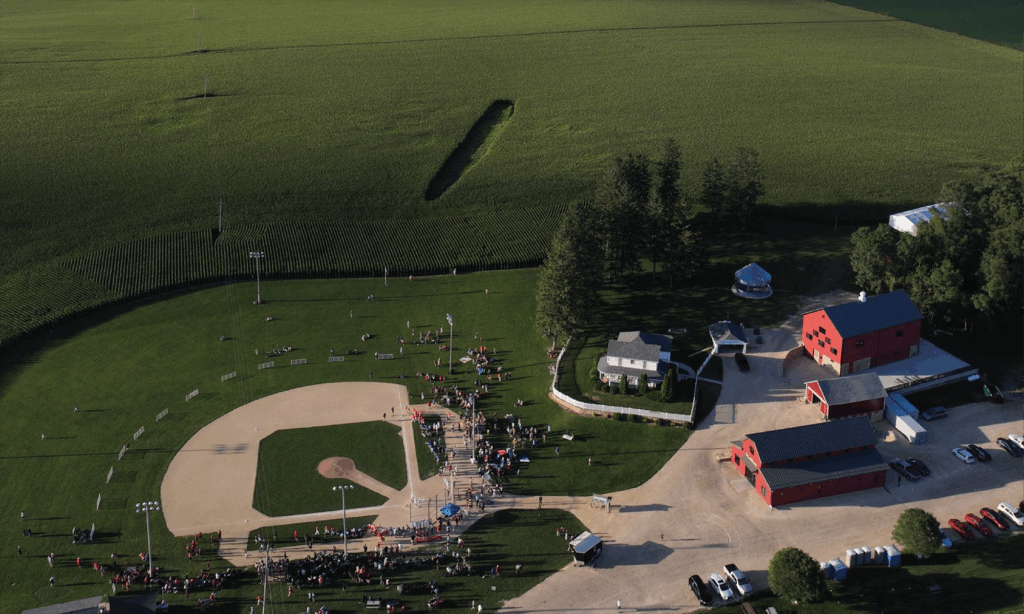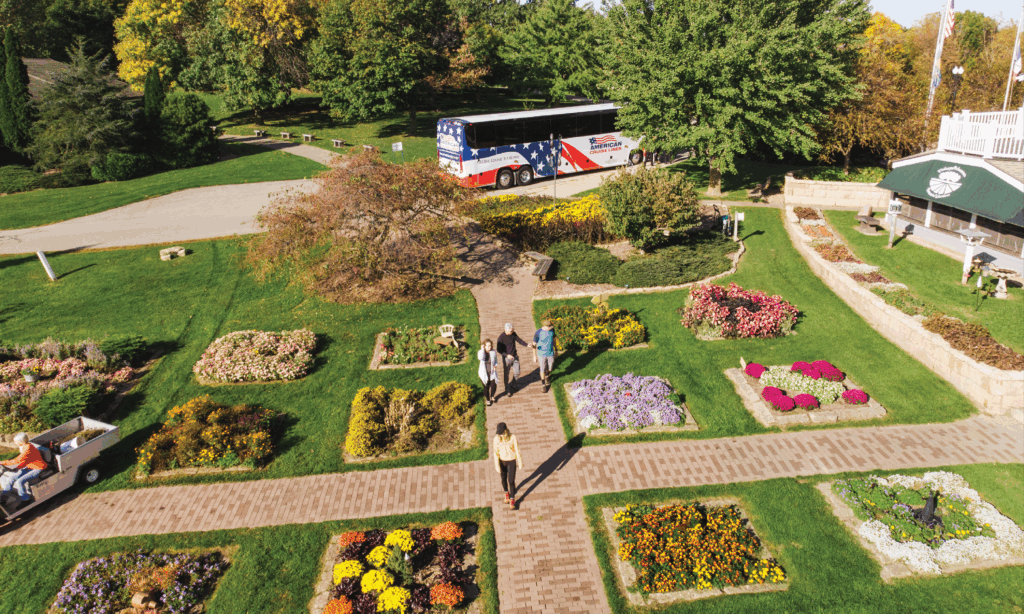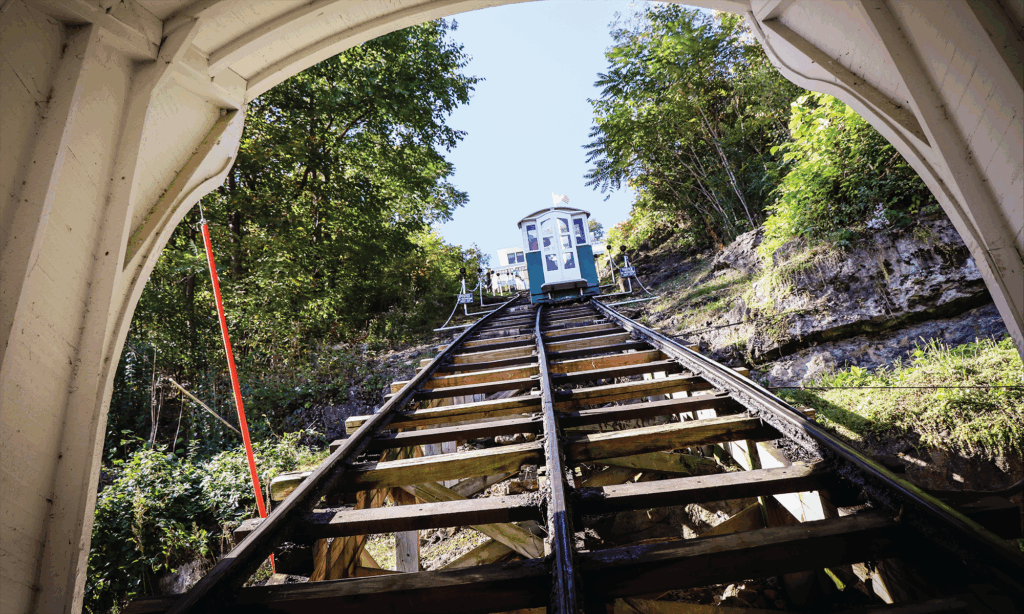The road into Dubuque curves over rolling hills, fields stretching wide on either side. It feels like entering a storybook, one where the chapters are written in limestone mansions, weathered barns, and gardens that burst with color through every season. Here, in Iowa’s first city, history is never far away, and neither is the warmth of a meal shared or a garden path walked.
For travelers who long for experiences with a soul, Dubuque County offers a three-day journey best told through its homes, barns, and gardens.
The house with character
On a quiet morning, the Mathias Ham House stands tall and dignified, its limestone walls glowing faintly in the sun. Inside, time feels suspended. Heavy velvet drapes shade parlors where Ham once entertained, and the carved woodwork carries whispers of prosperity. Ham himself was a character—nicknamed the “Sauerkraut King”—whose rise and fall mirror the boomtown spirit of Dubuque’s early days. Visitors leave with the sense that they’ve brushed shoulders with history.
Dinner with the past
The day unfolds like an invitation into private homes, where meals are not just served but also celebrated. During the Historic Progressive Dinner, guests find themselves savoring soup in one house, a main course in another, and dessert in yet another.
At the Fannie Stout House, a chandelier casts a soft glow across a table set for company. Built in 1893 and gifted to Fannie as a wedding present, the house still radiates joy and generosity. The stained glass windows scatter colors across the room, and as forks scrape plates and laughter fills the air, it becomes clear: Dining here isn’t just about food—it’s also about stepping into another family’s story.
In Dyersville, another home waits. The Dyer-Botsford House, the town’s first frame house, is elegant and proud. Yet what captures attention is not just the architecture but the 2,000 dolls that line its rooms—each one with a story, each one a piece of nostalgia.


If you build it …
Evening brings a different kind of magic. Past rows of corn, the white farmhouse of the Field of Dreams Movie Site comes into view. There’s a hush that falls as visitors step onto the baseball diamond. Some pick up a glove, others simply stand in the grass, remembering scenes from the film.
As the sun dips low, the barn doors open to reveal long tables set for dinner. The food is hearty, but it’s the setting—the farmhouse, the diamond, the corn swaying in the breeze—that makes the meal unforgettable.
Life in the barns
The next morning brings a chorus of alpacas into the fields at Irish Meadows Farm. Their eyes are wide, their fleece impossibly soft. The family that tends them shares stories of shows, ribbons, and long nights of work. It’s easy to get lost in the rhythm of farm life.
Lunch comes at Breitbach’s Country Dining, where recipes are older than the state’s highways. Iowa’s oldest restaurant is more than a place to eat; it’s a place to belong.
At Berning Acres, the story shifts to dairy. Cows move with calm precision as machines hum, and visitors learn just how much passion and grit sustain a modern farm.
Dinner at the Morocco Supper Club ends the day with crisp fried chicken, passed from platter to plate. It tastes of comfort, the kind that only comes when food and family are inseparable.


Gardens that breathe
The final morning dawns in bloom at the Dubuque Arboretum & Botanical Gardens. Depending on the season, it’s tulips, roses, or chrysanthemums that lead the show, but always, the gardens offer peace.
Nearby, Wanderwood Gardens offers a newer kind of wonder: whimsical trails that twist through forest, where imagination and nature meet. Opening in 2026.
At Eagle Point Park, the Mississippi River unfurls below, wide and timeless. Stone pavilions echo with laughter as families gather.
The journey closes at Convivium Urban Farmstead, where plates of farm-to-table food carry the flavors of nearby gardens.


Where Iowa started
By the end of three days, it’s clear: Dubuque County is not just a destination—it’s a story. Its homes reveal ambition and artistry, its barns echo with the voices of farming families, and its gardens remind us of the cycles of beauty and renewal.
Travelers leave not just with photographs but also with feelings—the warmth of chandeliers in old parlors, the laughter over pie at Breitbach’s, the awe of watching the sun sink over the Field of Dreams.
In Dubuque, Iowa, homes, barns, and gardens are more than landmarks. They are chapters in the American story. And for those who visit, they become chapters in their own stories.
For more information, contact Becky Carkeek with Travel Dubuque.
Photos submitted by Travel Dubuque




